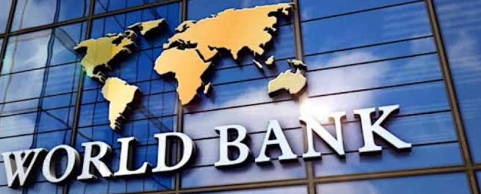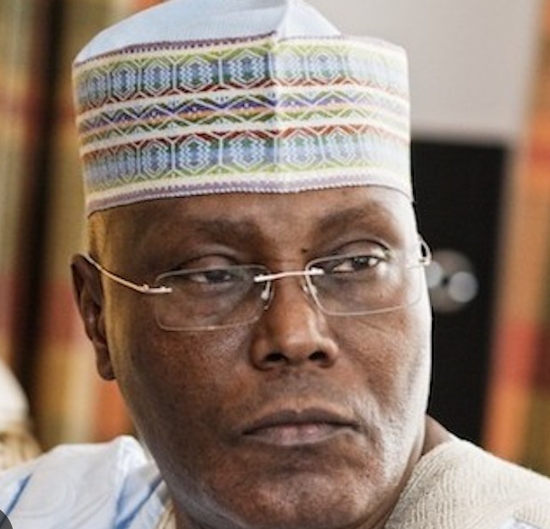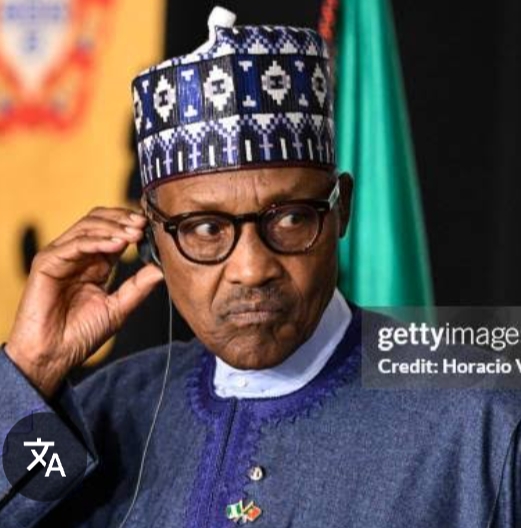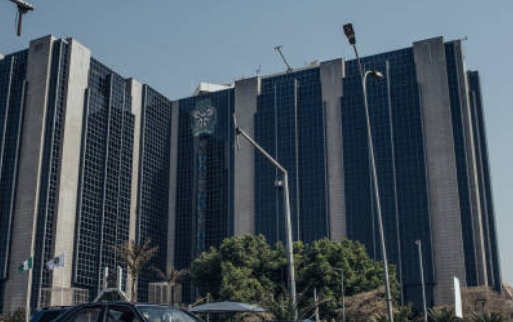News
SERAP Seeks Probe By World Bank Inspection Panel, Says Nigerians Remain In Poverty Despite $36Billion Loans

It also urged the panel to “review the implementation of all bank-funded projects by successive governments since 1999.”
The Socio-Economic Rights and Accountability Project (SERAP) has urged the World Bank Inspection Panel to investigate the spending of loans by the federal and state governments in Nigeria.
It also urged the panel to “review the implementation of all bank-funded projects by successive governments since 1999.”
The organisation asked the global bank “to probe allegations of corruption in the spending of the loans and other funding facilities obtained by the Federal Government and Nigeria’s 36 state governors and to review the implementation of all Bank-funded projects by successive governments since 1999”.
SERAP urged the Inspection Panel “to determine the extent to which Bank Management has followed or is following the World Bank’ s operational policies and procedures applicable to the design, appraisal and implementation of all Bank-financed projects in Nigeria”.
SERAP also urged the Panel “to determine the effect of any failure by the Bank Management to effectively implement its operational policies and procedures in all Bank-funded projects in several states on the social and economic rights and well-being of millions of socially and economically vulnerable Nigerians”.
SERAP’s complaint followed the Debt Management Office (DMO)’s report last week, that Nigeria’s total public debt stock, including external and domestic debts, increased by ₦24.33 trillion in three months alone, from ₦97.34 trillion ($108.23 billion) in December 2023 to ₦121.67 trillion ($91.46 billion) as of March 31, 2024.
In the letter dated 22 June 2024 and signed by SERAP deputy director Kolawole Oluwadare, the organisation said: “The World Bank has over the years reportedly approved 197 projects for Nigeria, totalling over $36 billion in loans and other funding facilities [that is, $36,360,415,968.81], with little or no impact on Nigerians living in poverty.
“Nigerians are rarely informed and meaningfully and effectively consulted about several of these loans, facilities and Bank-funded projects. Nigerians continue to be denied the benefits of the loans and facilities and access to basic public goods and services.
“Despite several loans and other funding facilities provided by the World Bank over many years, millions of socially and economically vulnerable Nigerians in several states and communities continue to lack access to regular electricity supply and have denied the benefit of renewable energy solutions.”
The complaint, addressed to the Chair of the Panel, read in part: “A recent report by the National Bureau of Statistics (NBS) revealed that over 133 million Nigerians are living in poverty, the majority of them women and children. We would therefore be grateful if the recommended measures are taken to hold the World Bank to account.
The apparent failure by Bank Management to diligently follow the World Bank’s operational policies and procedures in Bank-funded projects have resulted in the alleged mismanagement of the loans and facilities and exposed millions of Nigerians to extreme poverty.
“We are concerned about the negative impact of the lack of transparency and accountability in the spending of loans and facilities obtained by the Federal Government and Nigeria’s 36 state governors on the social and economic well-being of millions of Nigerians and the enjoyment of their human rights.
“We are concerned that several Nigeria’s 36 states and the FCT reportedly owe civil servants’ salaries and pensions. Several states are borrowing to pay salaries. Millions of Nigerians resident in these states and the FCT continue to be denied access to basic public goods and services.
“The Federal Government and several states are also reportedly spending public funds which may include the loans and facilities obtained from the World Bank to fund unnecessary travels, buy exotic and bulletproof cars and generally fund the lavish lifestyles of politicians.
“The ₦121.67 trillion ($91.46 billion) debt represents external and domestic loans obtained by the Federal Government, the 36 state governments and the Federal Capital Territory (FCT).
“The World Bank reportedly currently has a portfolio of about $8.5 billion spread across the country. The Bank has also approved several loans and other funding facilities to the country’s 36 states including the recent $750 million credit line meant to the states to carry out reforms to attract investment and create jobs.
“The Bank recently approved a $2.25 billion loan for Nigeria ‘to shore up revenue and support economic reforms and address cost-of-living crisis in the country.’”
SERAP noted that in September 2002, the global bank “approved $129.00 million for a project titled ‘Universal Basic Education Project: P071494’ ‘to increase the capacity of states and local governments to manage and implement the UBE program effectively and efficiently.’”
“The World Bank’s board of executive directors also has an obligation to ensure that the policies and decisions of the Bank are consistent with their own statutes and governments’ transparency and accountability obligations,” it added.
News
Kill your 2027 election, PDP, LP chieftains advise Atiku

By Kayode Sanni-Arewa
A member of the National Executive Committee of the Peoples Democratic Party, Diran Odeyemi, and a chieftain of the Labour Party, Anslem Eragbe, have advised former Vice President Atiku Abubakar to kill his 2027 presidential election ambition.
Both Odeyemi and Eragbe said the South should be allowed to rule for eight years.
They said the 2027 southern president might not necessarily be President Bola Tinubu.
Eragbe, in an interview with Sunday PUNCH, argued that Atiku should not have contested the 2023 presidential election because it was the turn of the South to produce a president.
He said, “Atiku was not supposed to contest the 2023 presidential election because it was the turn of southern Nigeria. It is the turn of the South till 2031.
“Being a former Vice President of Nigeria for eight years; Atiku knows Nigeria’s power drill and equation. He should support younger Nigerians to power and provide guidance in 2027.”
Asked if the former Vice President would breach any law if he chooses to run for the nation’s highest office in 2027, Eragbe said the PDP stalwart “is entitled to his ambition and aspirations, adding however that “2027 – 2031 is for southern Nigeria.”
According to him, the 2027 presidency shall remain in southern Nigeria and should be zoned to the South-South region.
“It should be further micro-zoned to the (defunct) mid-Western region. I mean the defunct Bendel, now Edo and Delta states. We expect the major political parties to do this for equity, justice, fairness and parity.
“However, should President Bola Tinubu, win the 2027 presidential election and continue till 2031, power shall return to Northern Nigeria,” he added.
The former President of the Student Union Government of Ahmadu Bello University, Zaria, added that when compared with other geo-political zones in the country, the South-South had spent the least number of years on the presidential seat.
“The region that has ruled the least in Nigeria is the South-South with only five years under Goodluck Jonathan and should rule Nigeria again beginning from 2027.
“When put together, the North-Central spent a total of 17 years and 11 months, North-West, 17 years, three months; North-East, 10 years, three months; South-West, 15 years, four months by the time Tinubu finishes his term in May 2027; South East spent five years and nine months and the South-South, the only region to spend five years only on the presidential seat,” he added.
Eragbe called on the political parties to identify credible politicians, regardless of their financial status, to fly their flags for the various elective offices, stressing that 2027 would be another opportunity to right the wrongs of the past.
Speaking with Sunday PUNCH, Odeyemi stated that the ex-vice president’s participation in the 2023 presidential election and his perceived ambitions for 2027 were the causes of PDP crisis.
He charged Atiku to bury his ambition, adding that once the former vice president failed to declare interest in 2027, the crisis in the party would be over.
The 2023 election was originally supposed to be between southerners, as former President Muhammadu Buhari, a northerner, had just completed eight years in office. However, Atiku insisted on exercising his rights, which is why there is a crisis in the PDP,” he stated.
News
Why Buhari govt was shoved aside – IBB

By Kayode Sanni-Arewa
Ex-military head of state, Ibrahim Badamasi Babangida (IBB), has stated that he shoved aside Muhammadu Buhari’s regime because he believed his policies were detrimental to the nation’s progress.
The former military leader disclosed this in his autobiography, ‘A Journey In Service’, launched in Abuja on Thursday.
Babangida was chief of staff to Buhari, who ousted Shehu Shagari’s civilian government in the December 31, 1983 coup.
After the military coup that replaced the civilian government of Shehu Shagari with a military regime led by Major General Muhammadu Buhari, Ibrahim Babangida assumed the Chief of Army Staff role.
However, he became increasingly dissatisfied with the Buhari government’s policies and leadership style, which he described as draconian.
Recalling how he journeyed from Minna to Lagos on August 27, 1985, to assume office, Babangida said tension had already begun to build up since the start of the year, and a change in leadership had become necessary.
He said, “On that day, it became my lot to step into the saddle of national leadership on behalf of the Nigerian armed forces. The change in leadership had become necessary as a response to the worsening mood of the nation and growing concern about our future as a people. All through the previous day, as we flew from Minna and drove through Lagos towards Bonny Camp, I was deeply reflecting on how we as a nation got to this point and how and why I found myself at this juncture of fate.
“By the beginning of 1985, the citizenry had become apprehensive about the future of our country.
The atmosphere was precarious and fraught with ominous signs of clear and present danger. It was clear to the more discerning leadership of the armed forces that our initial rescue mission of 1983 had largely miscarried. We now stood the risk of having the armed forces split down the line because our rescue mission had largely derailed. If the armed forces imploded, the nation would go with it, and the end was just too frightening to contemplate.
“Divisions of opinion within the armed forces had come to replace the unanimity of purpose that informed the December 1983 change of government. In state affairs, the armed forces, as the only remaining institution of national cohesion, were becoming torn into factions; something needed to be done lest we lose the nation itself. My greatest fear was that division of opinion and views within the armed forces could lead to factionalisation in the military. If allowed to continue and gain root, grave dangers lay ahead.”
News
How CBN Spent $8bn On Naira Defence Against Dollar At FX Market

By Kayode Sanni-Arewa
The Chief Executive Officer of Financial Derivatives, Bismark Rewane, has revealed that the Nigerian government, through the Central Bank of Nigeria, has spent almost $8 billion defending the naira at the foreign exchange market in the last months.
Rewane, a renowned economist, disclosed this at the weekend in an interview with Channels Television.
He was reacting to the decision by the Monetary Policy Committee to retain the country’s interest rate at 27.50 percent at the same time, maintaining other MPR parameters.
Explaining the reason the Naira has appreciated to N1,505 and N1,507 across parallel and official foreign exchange markets, he noted that the apex bank has several initiatives to support the country’s currency.
“We’ve also borrowed $4 billion in bond issues. When you take a look at that, you’ll see there is a lot of work. We’ve actually spent almost $8 billion trying to support the naira at current levels,” Rewane stated.
According to him, Nigeria’s January inflation figure, which dropped to 24.48 percent after the Consumer Price Index rebasing, does not reflect the reality of ordinary Nigerians.
“There’s no way that inflation can reduce by 10% in a short period. The man on the street does not believe that inflation has come down as sharply as that,” he said.
-

 News17 hours ago
News17 hours agoJust in : Senator Gumau is dead
-

 News18 hours ago
News18 hours ago10th NASS Committed to Constitutional Reforms – Kalu
-

 Metro10 hours ago
Metro10 hours agoInsecurity! Gunmen invade church, slash pastor’s 2 fingers
-

 News18 hours ago
News18 hours agoRep Salam Congratulates Governor Adeleke On Successful Conduct Of LG Elections
-

 Metro10 hours ago
Metro10 hours agoFire engulfs MTN office in Oyo
-

 News17 hours ago
News17 hours agoI have never insulted President Tinubu in my entire life”-Gov Adeleke
-

 News17 hours ago
News17 hours agoPolice seal OSSIEC office, officials nabbed, says chairman
-

 Politics16 hours ago
Politics16 hours agoWike excited as Orbih is re-elected PDP S/South Chairman







